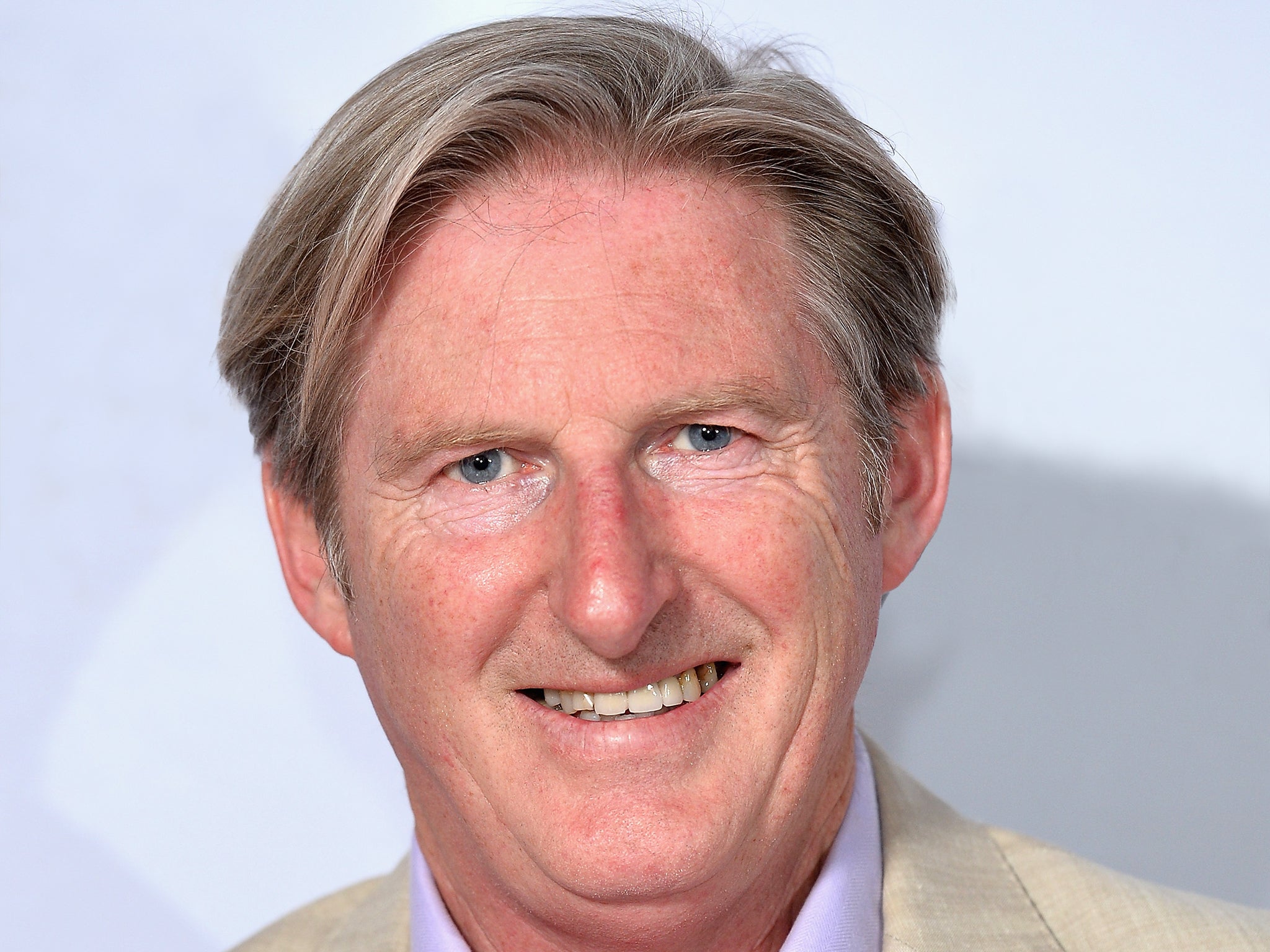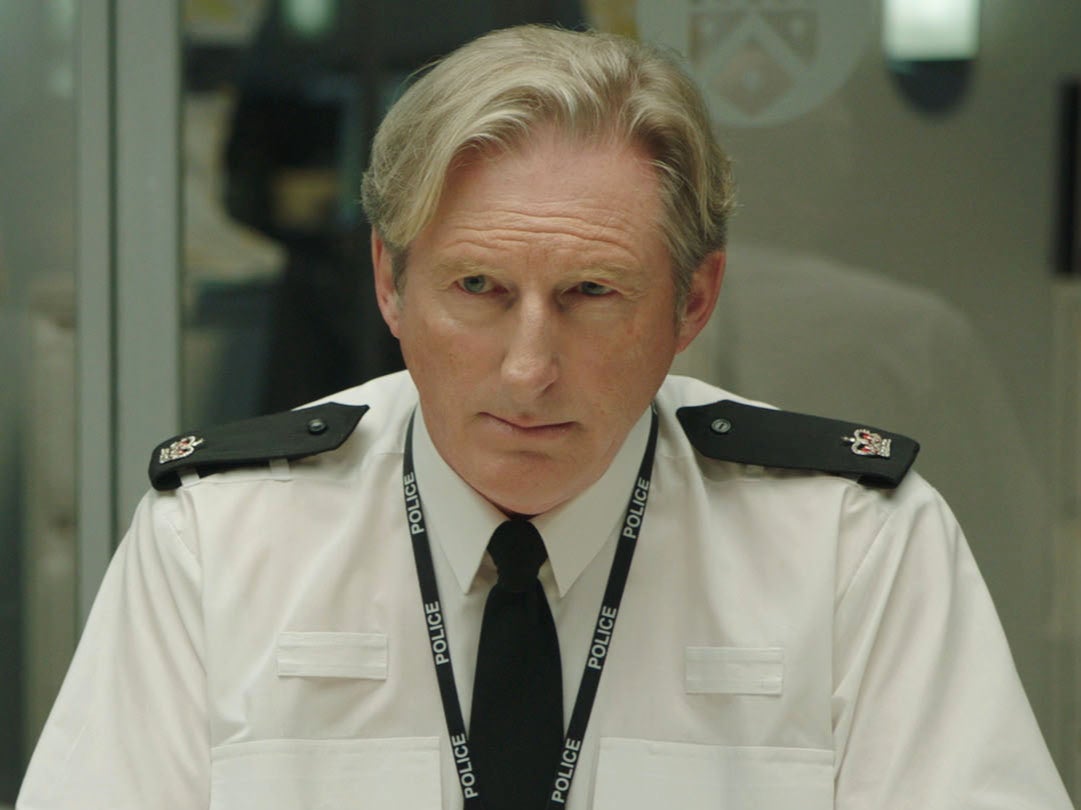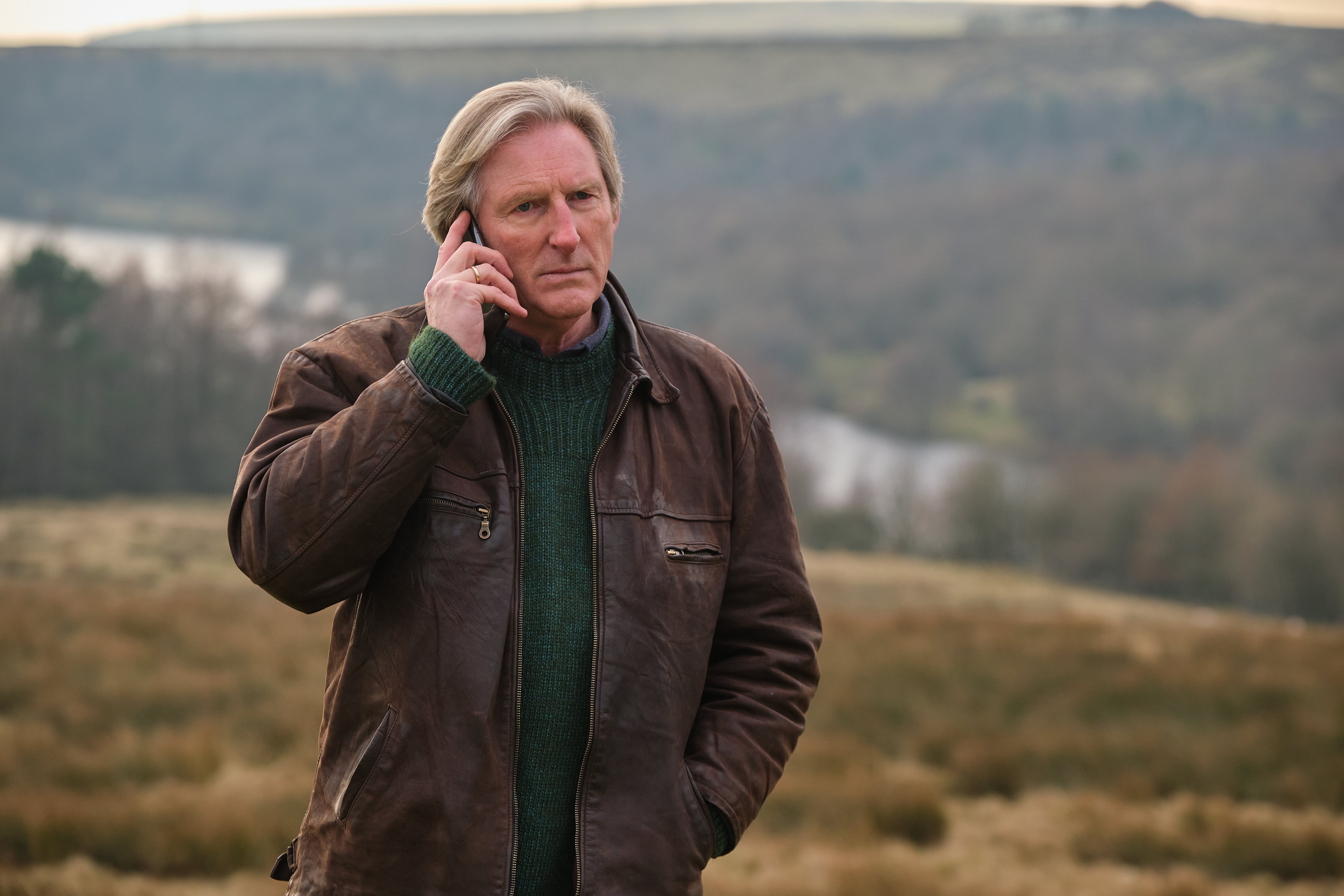Line of Duty’s Adrian Dunbar: ‘The Labour Party don’t have very sharp teeth at the minute’
The ‘Line of Duty’ star talks to Jessie Thompson about his new detective series, catching bent coppers, that divisive ending, and viewer theories linking the unmasking of H to Boris Johnson


Your support helps us to tell the story
From reproductive rights to climate change to Big Tech, The Independent is on the ground when the story is developing. Whether it's investigating the financials of Elon Musk's pro-Trump PAC or producing our latest documentary, 'The A Word', which shines a light on the American women fighting for reproductive rights, we know how important it is to parse out the facts from the messaging.
At such a critical moment in US history, we need reporters on the ground. Your donation allows us to keep sending journalists to speak to both sides of the story.
The Independent is trusted by Americans across the entire political spectrum. And unlike many other quality news outlets, we choose not to lock Americans out of our reporting and analysis with paywalls. We believe quality journalism should be available to everyone, paid for by those who can afford it.
Your support makes all the difference.Adrian Dunbar recently celebrated his birthday. “What did I have... I had something...” says the Line of Duty star, searching around his study at home in Highgate before holding up a card with his own face on it. It’s emblazoned with the words “I’m interested in one thing, and one thing only: YOUR BIRTHDAY”, a riff on his “catching bent coppers” refrain in the BBC’s stratospherically popular police drama.
For six series now, Dunbar’s character has united the nation with his arsenal of exclamatory catchphrases, prompting an entire Ted Hastings merchandise industry. I’m elated to learn that the actor is in on the joke; he admits, wryly, to having “a couple of mugs and things floating around with [that] kind of... stupidity on it”. But these lines... they have such a life of their own, now: doesn’t it make it harder for him to say them? He replies as though it’s the daftest question he’s ever heard. “No, not really. Just... off they go,” he shrugs. “It’s funny. It really is good. I enjoy the fact they’re out there, and they’re kind of making money for little people who make T-shirts and stuff.”
Dunbar is now something of a national treasure; Hastings and his Tedisms have had us hanging off his every word. His winning performance as a guy who is, essentially, a nice boss with a shambolic personal life and a dogged commitment to integrity, fits watercooler drama like a glove. Born in Enniskillen in 1958, Dunbar now lives in London; early in his career, he carved out a series of roles in Irish stories like The Crying Game, My Left Foot and the Bafta-nominated Hear My Song (which he also co-wrote).
He’s worked frequently in theatre, directing shows at the Happy Days Enniskillen International Beckett Festival and, last year, playing Claudius in the Young Vic’s sold-out Hamlet. But it wasn’t until Line of Duty that he became a household name, something of which he can now enjoy the spoils. He’s in demand both as himself – he spent his 64th birthday in Cork, filming his own travel series – and as an actor. This week, he stars in new ITV flagship drama Ridley; like Morse, Frost and Taggart before him, he has the lofty honour of being the name on the tin.
We first meet retired detective Alex Ridley in his lakeside bolthole, marinating in his own sadness; he’s grieving for his wife and daughter, who have died in a mysterious fire. Ridley dives back into his work to distract himself. “He’s a different character to anything I’ve played before,” Dunbar explains, in black-rimmed specs and a stripey shirt. Ridley is a rover, more prone to donning a wax jacket and cornering suspicious local characters than riffling through paperwork and gazing enigmatically out of glass corner-offices.
Across four feature-length episodes, he works with old colleague DI Carol Farman (Bronagh Waugh) on a series of cases, while we’re drip-fed elements of his melancholy backstory. “He starts off from a very low place; he finds himself isolated and quite alone. It’s a tough journey for him. The past is difficult for him, there’s elements where he feels guilty and culpable for what happened [to his family].”
Aside from work, Ridley puts his grief into music – he co-owns a jazz bar with an old friend, and is partial to a vinyl record or two. It was one of the role’s major attractions: Dunbar was able to “put my own self in it, you know – put my own stamp on it”. He, too, is passionate about music, and he shows off his singing at the end of the first episode. (Spoiler alert: he’s got lovely pipes.) “I always liked the idea of The Singing Detective, back in the day. I kind of thought, right. If there was a musical element to this, I’d be really happy.”
Dunbar discovered the songs of Richard Hawley and considered them a perfect fit. “I realised that his songs in particular deal with male grief. And that suits my character, but also the tenor of the show.” Tonally, he thinks Ridley hits “a sweet spot”. “It’s visceral, but it’s not nasty – you’re not exposed on a Sunday night as a family to things you really don’t want to see. On the other hand, it’s not twee. It’s got an edge to it.”
It’s a great time to be working in TV and film; with multiple platforms, content is in high demand and more stories are being told than ever. There’s been a noticeable boom in Northern Irish stories – think of Derry Girls, Belfast and The Fall. “When I started my career, of course, the Troubles were in full swing and there was a lot of focus on Northern Ireland. So it did have a period there in the 1980s when a lot of stuff was happening there. A lot of kind of dark, mostly negative stuff.” But these stories now have “a more positive aspect”, with less of them focused on terrorism, for one thing.

Watch Apple TV+ free for 7 days
New subscribers only. £8.99/mo. after free trial. Plan auto-renews until cancelled

Watch Apple TV+ free for 7 days
New subscribers only. £8.99/mo. after free trial. Plan auto-renews until cancelled
With the cost of living so high, families, too, are relying on good television more than ever. TV is ready to deliver on these demands, thinks Dunbar – that in the hierarchy of mediums, it’s now on the level of literature and cinema. “Now you’d say, ‘You should go back and watch this series,’ not just because it was ground-breaking but because of the subjects it tackled really well.” He’s conscious that this brings an extra layer of responsibility.
“TV is in a completely different place now than what it was. In that respect, families are choosing what to watch, so we have to make sure that what we’re delivering on a Sunday night, before everyone goes to school the next day, our family audience are going to feel that they’re in safe hands.”
The return of Line of Duty certainly played its part in rescuing national morale last year. The sixth series, arriving at the tail end of the demoralising early-2021 lockdown, often reached the heights of the show’s glory years, with internet-breaking car chases and scream-worthy cliffhangers. But the finale, watched by 12.8 million, remains divisive. Many felt unsatisfied by the long-anticipated revelation of the identity of corrupt senior police officer “H” – the bumbling background character Buckles. Dunbar is aware of the mixed reaction, but thinks it was “a good way of finishing it”.
“There were very few other ways of finishing it. There never really is a kind of ‘Mr Big’ where the police are concerned – it’s usually just someone not passing on a piece of information, turning a blind eye. It’s the very simple things like that, that actually make the big crimes work – somebody’s decided not to pay attention to a piece of information because they’re in the pocket of some criminal,” Dunbar suggests. “So I thought it was a very clever – if not wholly satisfying dramatically – way of ending the series.
“I mean, it would be very difficult to bring a new character in; it had to be somebody who we already saw and knew. So to that extent it was a good ending, factually. But, you know, I can also understand that people wanted that big, dramatic reveal, because the show had been built on big dramatic reveals.”

Either way, the idea that H’s clown-like persona had misdirected AC-12 from his nefarious deeds seemed, to many, to be an indirect comment on our now-departing prime minister. “Your corruption has been mistaken for incompetence,” declared Hastings in the interrogation room.
“Without us having to really think about that, I think people drew their own conclusions,” Dunbar says now. “If Boris Johnson hadn’t put himself in the crosshairs of all of that – if he hadn’t fulfilled all of the imaginings of that particular phrase, I mean... ’cause he did. So therefore, I think, the public naturally thought, ‘Well, who do we know who’s all of those things?’” Dunbar laughs knowingly. “Obviously Boris.” The show didn’t set out to focus on him, “but he was taking up so much of the attention in the public’s eyes, they couldn’t do anything else but make the connection”.
There’s never really a Mr Big where the police are concerned
The outrage at Johnson’s chronic mismanagement inspired AC-12 to reunite for another case. In January, Dunbar and his Line of Duty co-stars Vicky McClure and Martin Compston teamed up with political satire group Led by Donkeys to make a spoof of Johnson under questioning about Partygate. Yes, things really were in such a bad state that fictional characters had to hold the PM to account. It promptly went viral; Dunbar isn’t on social media, but enough people congratulated him on it for him to be aware it had been widely seen.
“Of course, you know...” – he’s having fun with me now, almost in character – “none of us can confirm or deny our participation” – voice slowing, falling to a mutter – “in these so-called... videos. Heh.” But then he explains, matter-of-fact: “Sometimes you get a chance to do something that you think is right, and that you think might help. And in the absence of critique – you know, we don’t have much left-wing press, sadly, and the Labour Party don’t seem to have very sharp teeth at the minute.
“And satire is a great thing, because it combines humour with criticism. And to that extent, I thought it was fair enough to have a go at people who seemed to be having just too good a time at our expense.”

Plans are afoot for more Line of Duty, although nothing is “set in stone”, Dunbar tells me. “But I do know that everyone’s talking about it, and I do know everybody wants something to happen. What shape that will take, we don’t know yet. It’ll come down to Jed [Mercurio] and what he decides to write – and it’s quite a task, I think, for him to come in and write something now that’s going to grip all our attention.” Wait and see, basically. An announcement may be coming at the end of the month, he teases.
For the time being, he’s keen for a break after a very hectic period; later this year he’s going on the road to make a show about DNA connections, alongside good pal and former LoD co-star Neil Morrissey. “A few days on the road with Neil, that should be funny... Neil and I will probably turn out to be third cousins.”
In his blissful world away from social media, he knows nothing of a very convincing hoax tweet I saw that suggested he was joining this year’s Strictly Come Dancing line-up. “Oh no, that’s not happening, I can assure you,” he says, perturbed. Nor does he know that a picture of him having dinner with Mercurio and his LoD co-stars in June sent us all into paroxysms. What were they plotting? Were they plotting?
“There’s always plotting going on. There’ll be more plotting” – he enunciates the word, playfully – “at the end of the month, I’d say. There’ll be more plotting.” Mother of God, here I am again, hanging off his every word.
‘Ridley’ starts on ITV at 8pm on 28 August



Join our commenting forum
Join thought-provoking conversations, follow other Independent readers and see their replies
Comments